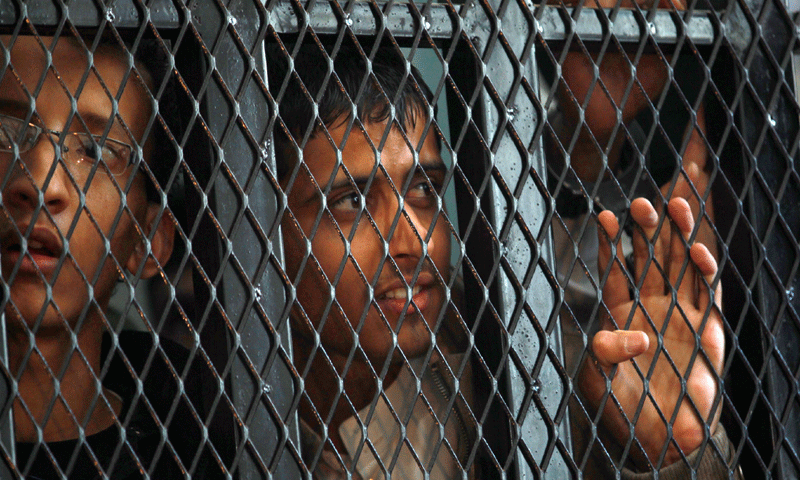SANAA: A Yemeni court on Wednesday jailed five Al Qaeda militants for up to 10 years for plotting a suicide bombing that killed 86 soldiers and wounded 171 others last year.
The court specialising in terrorism-related charges sentenced two defendants to 10 years in prison and a third to seven years.
Two more were imprisoned for three and two years respectively.
The judge also ordered the release of three other defendants based on the time already served, and acquitted three more.
The 11 were on trial for their alleged role in planning the suicide attack on a rehearsal for a military parade on May 21, 2012.
According to the charge sheet, the suspects had all been in direct contact with the suicide attacker, Haytham Mufreh.
The five convicted said they will appeal the rulings.
“This is not a ruling. This is oppression,” shouted Hisham al-Sharaabi, who was sentenced to seven years. “I am not Al Qaeda.”
His mother, present in court and covered in black from head to toe, sobbed as the verdict was read. “My son is innocent. He does not even know Al Qaeda,”she said.
The hearing took place under tight security.
The judge also ordered that two former security chiefs, who had headed the central security services and were appointed during the time of former president Ali Abdullah Saleh, again face questioning about the case.
In March, former central security services commander General Abdulmalik al-Taieb and his deputy, General Yehya Mohammed Abdullah Saleh, denied any links with the bombing.
Taieb was sacked on the day of the bombing, while Yehya, a nephew of Saleh, was dismissed in December.
When the trial opened in January, Sharaabi, 24, said that the bombing was “political” and “involved high-ranking officials”.
Al Qaeda said it was behind the attack, saying it targeted Defence Minister Mohammed Nasser Ahmed and his aides, but the minister escaped unharmed.
The bombing came three months after President Abdrabuh Mansur Hadi took power after Saleh was forced to step down following a year-long uprising against his 33-year rule.
Hadi has since sacked many Saleh appointees from top security and military posts, using his powers to restructure the security forces under a UN-backed transition deal.
















































Dear visitor, the comments section is undergoing an overhaul and will return soon.